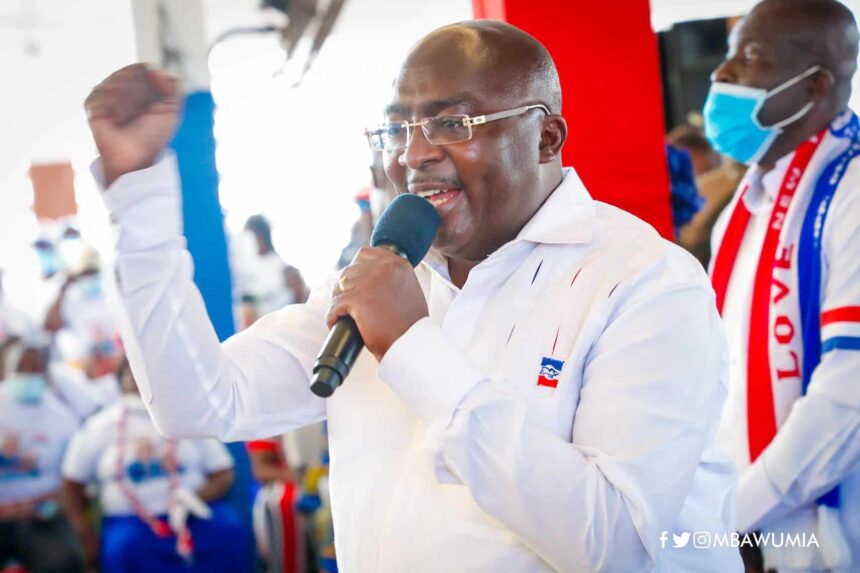Accra — Political writer J. A. Sarbah has waded into the raging debate over who truly “suffered” for the New Patriotic Party (NPP), delivering a blistering defense of Dr. Mahamudu Bawumia. In his latest commentary titled “Bawumia Didn’t Join a Party of Honey – He Rescued a Movement on Life Support,” Sarbah argues that the Vice President did not join a vibrant political machine but rather stepped into a dying party crippled by greed and internal division.
According to Sarbah, those claiming ownership of the NPP’s history are guilty of what he calls the “Ownership Fallacy” — a belief that the party belongs only to a few early members who claim to have suffered during its formative years. He dismisses such entitlement as arrogant and outdated. “Bryan Acheampong was a 20-year-old boy when the NPP was launched. Kennedy Agyapong was a 32-year-old taxi driver in America. Where does this hubris come from?” he asked pointedly.
Sarbah’s piece takes aim at what he describes as an “ideologue class” of old guards, accusing them of nearly running the NPP aground before the 2008 elections. “Dr. Bawumia didn’t come to meet a party flowing with milk and honey. He was brought in as a credible outsider to rescue a sinking movement,” he wrote.
He recounted how Bawumia’s early days in politics were anything but smooth. “He was ridiculed, mocked for his accent, and dismissed as a technocrat with no roots. Yet he stood firm, selling the NPP message across villages and regions that others ignored.” Sarbah credited the former vice president with expanding the NPP’s reach, especially in northern Ghana, where he helped dismantle perceptions that the party was only for southern elites.
Sarbah also highlighted Bawumia’s role in the 2012 election petition, describing it as a defining moment in modern Ghanaian politics. “His analytical brilliance gave the NPP a lifeline,” he wrote, noting that Bawumia’s command of data and policy helped rebrand the NPP as a serious intellectual alternative during its years in opposition.
He contrasted Bawumia’s “intellectual struggle” with what he described as the “chair-breaking politics” of some party figures who equate physical confrontations and noisy protests with sacrifice. “That is not comfort,” he said. “That is struggle — the kind that builds credibility rather than chaos.”
Sarbah’s commentary frames Bawumia not as a latecomer to the NPP but as a reformer who breathed new life into a fading movement. “He didn’t destroy the party to rise; he revived it when others were busy cashing in on their ‘old struggle’ dividends,” he stated.
The writer concluded that every generation has its own version of political struggle, and Bawumia’s was fought on the battlefield of ideas, policy, and economic strategy. “Some suffered to build the party’s name. Bawumia suffered to keep it alive,” he wrote.
Analysts say Sarbah’s article reflects growing divisions within the NPP as it redefines itself under new leadership. But his defense of Bawumia also resonates with younger supporters who see the Vice President as the bridge between tradition and modernity — the man who turned technocracy into political strength.




